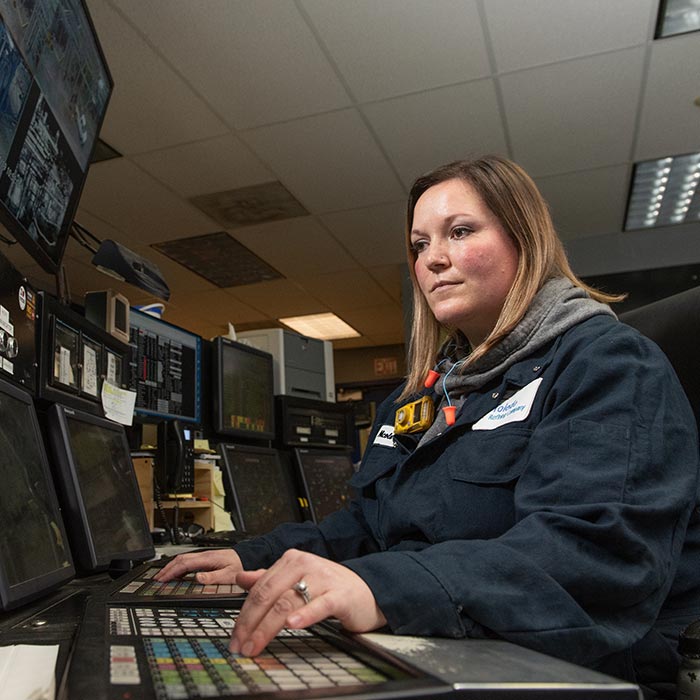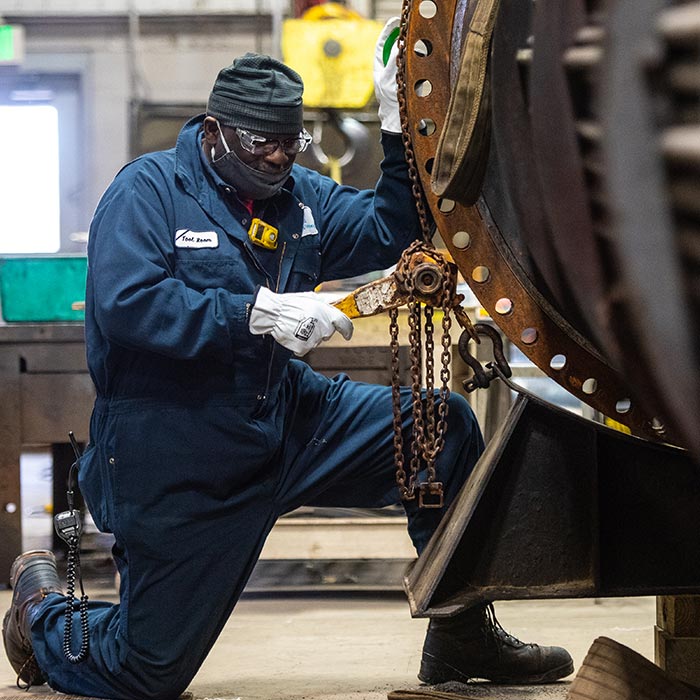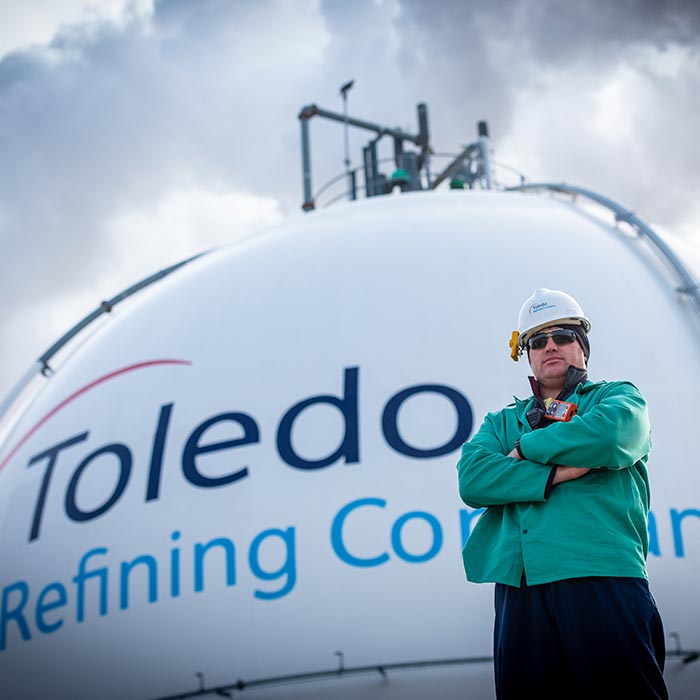A Future on the Line: Uncertainty for All of Us
When he was just a little kid, Mike Sarns Jr. recalls, his grandfather worked at the oil refinery about a mile from the Maumee River in East Toledo, Ohio.
As the younger Sarns was growing up, his father started working there. Today, Sarns himself is beginning his fourth decade in the facility, which, at 125 years, is one of the oldest refineries in the United States.
“It’s not just a job,” he said. “It’s home, man.”
That’s a sentiment shared by many of the 300-plus members of Local 912 who work at the Toledo Refining Co. facility.
“Our refinery needs to be a vital part of the future,” said Local 912 President Justin Donley, who has worked at the facility for 17 years.
Sadly, that future is murky today due to the uncertain status of Enbridge Line 5, a set of pipes that carry crude oil, natural gas liquids and other petroleum products through the Great Lakes states and parts of Canada. In 2019, Michigan filed a lawsuit seeking to shut down parts of the line that pass under the Straits of Mackinac, waterways that connect Lake Huron and Lake Michigan between the state’s upper and lower peninsulas. Jobs are in jeopardy and the financial viability of the Toledo plant and community are in jeopardy. Read more here.
Recent Video
Saving Line 5 shows we can have good jobs and a safe environment
Economic Impact
Clean Refining
Refinery Products
A Safe Refinery
The Toledo PBF facility complies with all environmental and safety standards. Non U.S. refineries have significantly greater climate impacts than those operating domestically. A closure of the refinery could lead to an increase of imported fuels produced in countries with more lax environmental standards leading to a net negative effect on the global climate.
The alternative to pipeline transportation could mean thousands of tankers carrying petroleum products back and forth along local highways and railways, as well as higher fuel prices throughout the region, from the jet fuel used by carriers at Detroit Metropolitan Airport to the heating oil that is vital for residents of Michigan’s Upper Peninsula.
Looking at the big picture, the result would be more widespread economic consequences, as well as additional environmental problems from increased emissions, leaks and other potential disasters.


#USWMade
Every day, our members at the Toledo Refining Co., one of the most environmentally friendly oil refineries in the world, produce:
- Enough gasoline to fill 224,000 cars (15 gal each)
- Enough diesel to drive a semi from New York to Los Angeles 2,700 times
- Enough jet fuel to fly around the world 42 times (Boeing 737 with 100 passengers)
- Enough butane to fill 160 million BIC lighters
- Produce 120,000 gallons of heavy fuel oil
- Produce 400,000 gallons of petro-chemicals that go into everything from medicines to clothing
- Produce 50 tons of sulfur
Economic Ripple Effect
Losing Line 5 could result not only in lost jobs for Local 912 members, but shuttered restaurants, gas stations, hotels, grocery stores and other businesses in the area around the refinery.
“We’re all in this together,” said 25-year refinery worker and Local 912 member John Avery. “This is where we live, and we all have to take care of it.”
Members of Local 912 have contributed hundreds of thousands of dollars and service hours to the community where they live and work. Many are outdoors enthusiasts and are proud to work in a facility that they view as an essential part of the transition to a greener economy.
